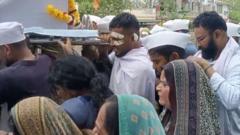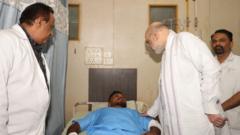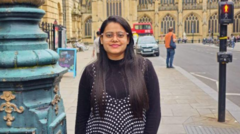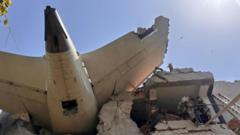In a poignant narrative, Taffy Brodesser-Akner reflects on her close relationship with Jehuda Lindenblatt, a Holocaust survivor, as she grapples with the impending loss of her friend's father and contemplates the heavy legacy of the Holocaust within her community.
Reflections on a Holocaust Survivor: The Love and Legacy of Jehuda Lindenblatt

Reflections on a Holocaust Survivor: The Love and Legacy of Jehuda Lindenblatt
An intimate exploration of Jehuda Lindenblatt's life from the perspective of a close friend as he nears the end of his journey.
As I was navigating the bustling streets of London last November, I received heartbreaking news about Jehuda Lindenblatt, the father of my dear friend Ilana. It was a typical morning when I called to check in, driven by a dream that hinted at deeper emotional currents. Though it was certainly not the joyous call I had hoped for, Ilana’s gentle voice revealed that her father was facing the twilight of his life due to cancer, undergoing palliative chemotherapy, with an uncertain timeline ahead of him. This inevitability marked a somber theme in the shared narrative of survival and memory.
Thinking back on Jehuda, or Yehuda as he is pronounced, my mind danced across the myriad moments that shaped my understanding of resilience. He jogged before it was trendy, championed alternative lifestyles long before they were fashionable, and fostered an undeniable warmth—a refreshing contrast to the often stoic demeanor of fathers around my neighborhood in Brooklyn. As someone who selflessly drove Ilana and me to our often unsuccessful basketball games, his version of “dad-ness” was unique, embodying kindness and a heartfelt attachment to his family.
His story was part of a wider tapestry within our community—one woven through the experiences of many Holocaust survivors. As children, we often took for granted the richness of our educations tied to the Holocaust. Although steeped in painful history, these stories served as a foundation and a lens through which we not only understood suffering but also joy and survival.
Growing up in a yeshiva, I often teased that we were educated as if we attended a 'magnet school for Jewish death studies.' My learning was focused on the darkest chapters of history—reading Elie Wiesel's "Night" repeatedly and discussing Anne Frank's diary at length, all while struggling with subjects like math. This legacy of armed knowledge became a conflicting compass guiding my adult life.
Reflecting on Jehuda’s life evokes both nostalgia and urgent responsibility. As he faces this final chapter, I’m reminded of the vitality of remembrance and the stories that bind generations. It is through these narratives that we honor not just the struggle of survival but celebrate the laughter, family bonds, and resilience that defines our shared human experience.
As I process this inevitable loss, I understand that while we may not always have the ability to articulate these stories, they become an integral part of who we are. Therefore, we must carry forward the legacies of those like Jehuda Lindenblatt, not merely as a recollection of suffering but as testament to courage, love, and the fervent belief in life’s enduring spirit amidst adversity.





















